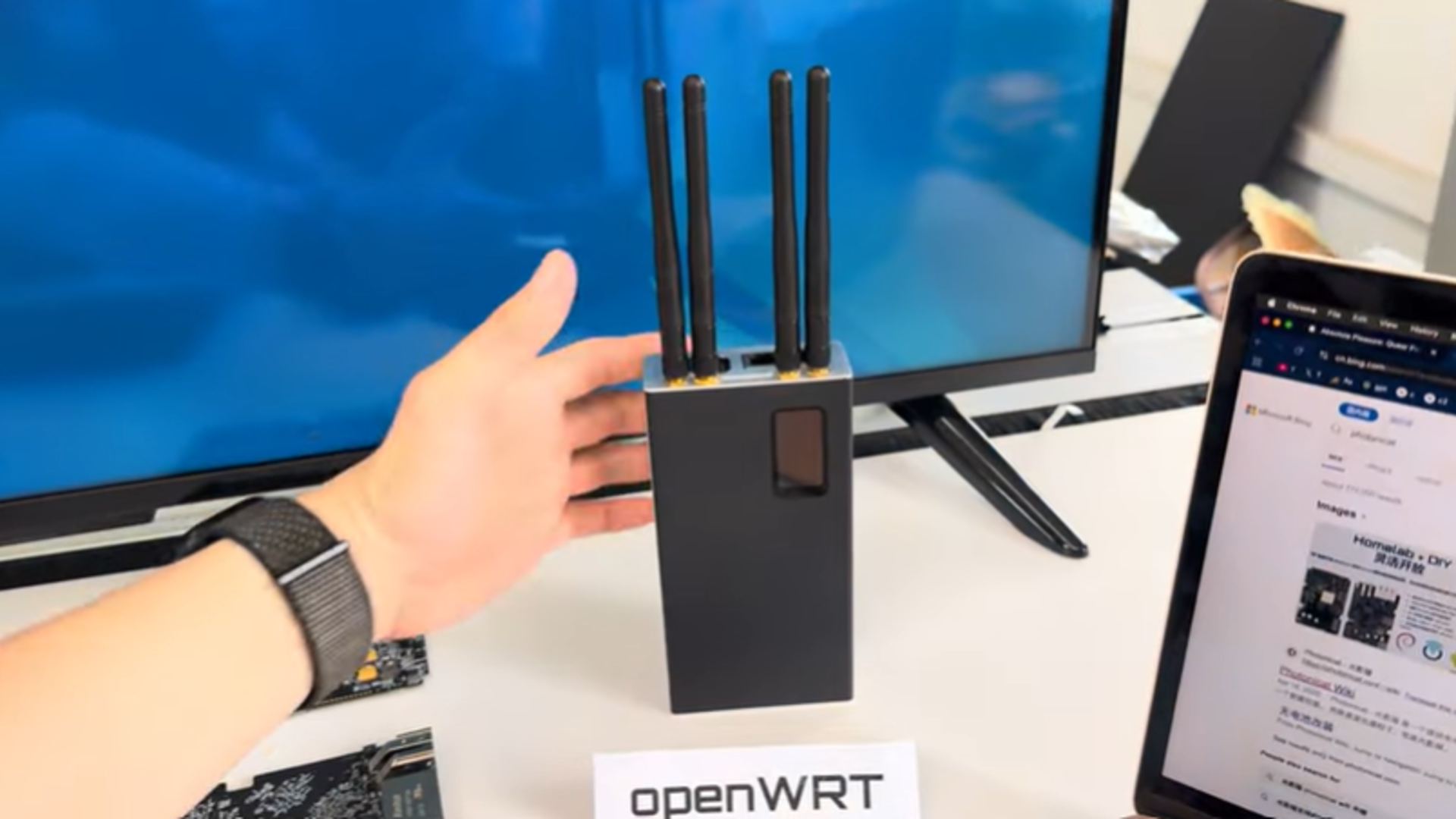If McGyver bought a PC, it would probably be the Photonicat - brick-like computer has built in 24-hr battery, ports agogo, SIM slot, external antennas, NVMe slot, and is even open source
Open source software stack supports Debian, OpenWrt, and a custom Android built script

Sign up for breaking news, reviews, opinion, top tech deals, and more.
You are now subscribed
Your newsletter sign-up was successful
- Photonicat 2 offers up to 24-hour battery life inside a compact computing brick
- The device supports HDMI 4K output alongside dual gigabit Ethernet connections
- Users can expand storage with an NVMe slot supporting compact 2230 drives
The Photonicat 1 was built as a portable, battery-powered router offering open source flexibility, broadband-like connectivity, and support for WireGuard, Tailscale, Ethernet, and smart routing through OpenWrt.
It featured Wi-Fi AC, PCIe expansion for 4G/5G or Wi-Fi 6, dual-boot eMMC/SD, a high-performance CPU for gigabit NAT, and a durable magnesium-aluminum body with rechargeable battery power.
The Photonicat 2 is a follow-up to the first model, carrying forward the same unusual concept of a compact, battery-powered, and highly flexible computing box.
Compact frame with a configurable screen
The device measures 154 x 78 x 32 mm and weighs 260 grams without its batteries, but this climbs to 485 grams when those are included.
It includes an LCD screen that can display network status, data consumption, storage capacity, IP information, and system temperatures.
The display is fully customizable using JSON, which gives the user freedom to adapt it to individual needs.
This system runs on the Rockchip RK3576, an eight-core processor described as offering three times the performance of the earlier RK3568.
Sign up to the TechRadar Pro newsletter to get all the top news, opinion, features and guidance your business needs to succeed!
Paired with up to 16GB of LPDDR5 memory and 128GB of eMMC storage, it provides a foundation that should be adequate for lightweight computing tasks and network management.
Storage expansion is possible through an NVMe slot that supports compact 2230 drives, and the unit includes PCIe connectivity for adding components such as a 5G modem.
Whether this results in a smooth experience for all use cases will depend on how well the hardware works with the open-source software stack.
The Photonicat 2 provides dual gigabit Ethernet ports, HDMI with 4K output at 60 frames per second, a USB-C port capable of 30-watt charging, and a USB-3 port for peripherals.
It also includes slots for microSD and nano-SIM cards, plus external antenna connectors for improved reception.
These options make it a versatile box, although the real-world performance of 5G or Wi-Fi under heavy loads remains to be tested.
This device comes with a 7000mAh battery, which offers between 10 hours and 24 hours of usage time depending on the workload.
It also uses a passive cooling design supplemented by a fan for heavier tasks to balance silence with sustained performance.
On the software side, the system runs Linux with kernel 6.12+, supports Debian and OpenWrt, and provides an Android build script.
This open approach invites experimentation, but it also places responsibility on the user to configure and maintain stability.
At the time of writing, the Photonicat 2 has raised $13,732 from 40 backers on Kickstarter, surpassing its $6,566 funding goal with 22 days remaining in the campaign.
Disclaimer: We do not recommend or endorse any crowdfunding project. All crowdfunding campaigns carry inherent risks, including the possibility of delays, changes, or non-delivery of products. Potential backers should carefully evaluate the details and proceed at their own discretion.
You may also like
- These are the best NAS devices around
- We've also rounded up the best cloud storage platforms on offer
- 'More like a pendulum than a hammer': The AI chip that can reuse its own energy

Efosa has been writing about technology for over 7 years, initially driven by curiosity but now fueled by a strong passion for the field. He holds both a Master's and a PhD in sciences, which provided him with a solid foundation in analytical thinking.
You must confirm your public display name before commenting
Please logout and then login again, you will then be prompted to enter your display name.